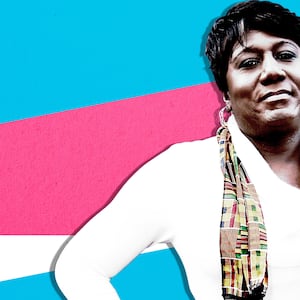In this special series, LGBT celebrities and public figures talk to Tim Teeman about the Stonewall Riots and their legacy.
Monica Roberts is the founder of the influential TransGriot blog, which reports on the murders of trans women alongside other news of importance to the trans community.
When/how did you first hear about the Stonewall Riots, and what did you make of it?
ADVERTISEMENT
When I hit high school in 1977 and I was becoming more aware that I was transgender. The significance of it didn’t hit me until after I transitioned in 1994 and learned about the history leading up to the event and the role of trans POCs (people of color) Marsha P. Johnson and Sylvia Rivera in it.
What is their significance for you?
The significance is this movement was jumped off because trans, lesbian, and gender non-conforming people got tired of being oppressed and fought back. Stonewall inspires me to keep fighting for trans equity for my community and the generations behind us.
How far have LGBT people come since 1969?
While we have come a long way since 1969, are electing people to public office, and are culture influencers, we still have much work to do. Trans people’s rights aren’t secure. We have had SCOTUS cases go for and against us since 1969. Black trans women are still viciously attacked and murdered. The churches, right-wing media and right-wing politicians are still pushing anti-TBLGQ (transgender, bisexual, lesbian, gay, queer) rhetoric for political gain. We cannot rest until full equity exists for the entire community.
What would you like to see, LGBT-wise, in the next 50 years?
More TBLGQ people elected to public office, and especially TBLGQ people of color. The Equality Act passed. Trans rights being unconditionally acknowledged in society and law as human rights. Our kids being able to grow up and just focus on making their big dreams come true instead of battling bullies. Our churches to stop Bible-beating TBLGQ people. Trans folks being allowed to compete in athletics like anyone else. Trans medical procedures being covered by universal health care, like they are in other developed nations.






